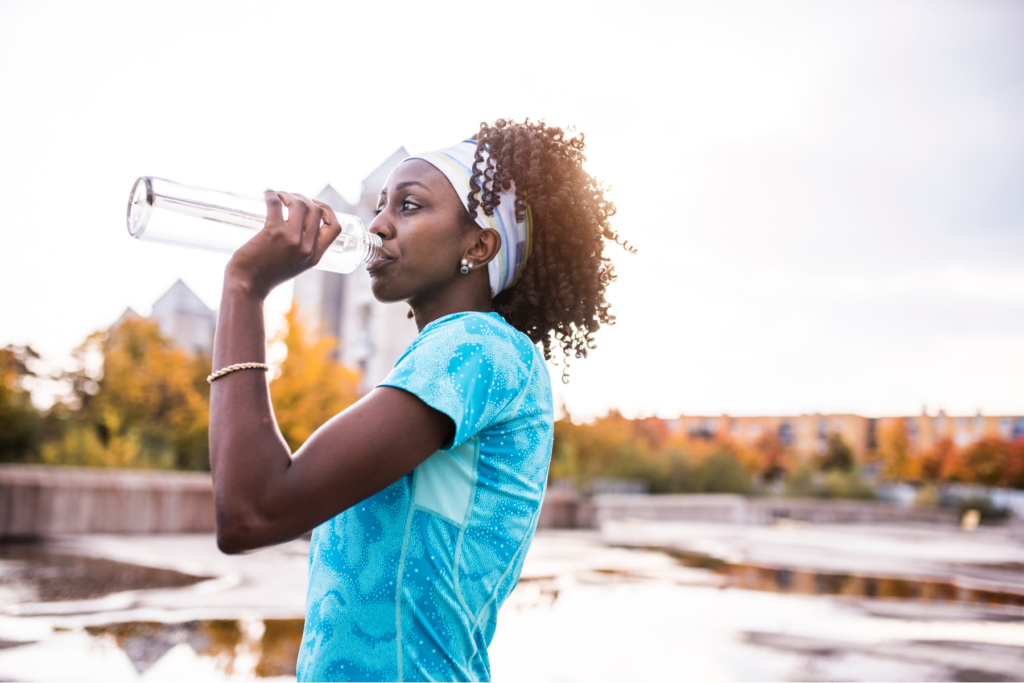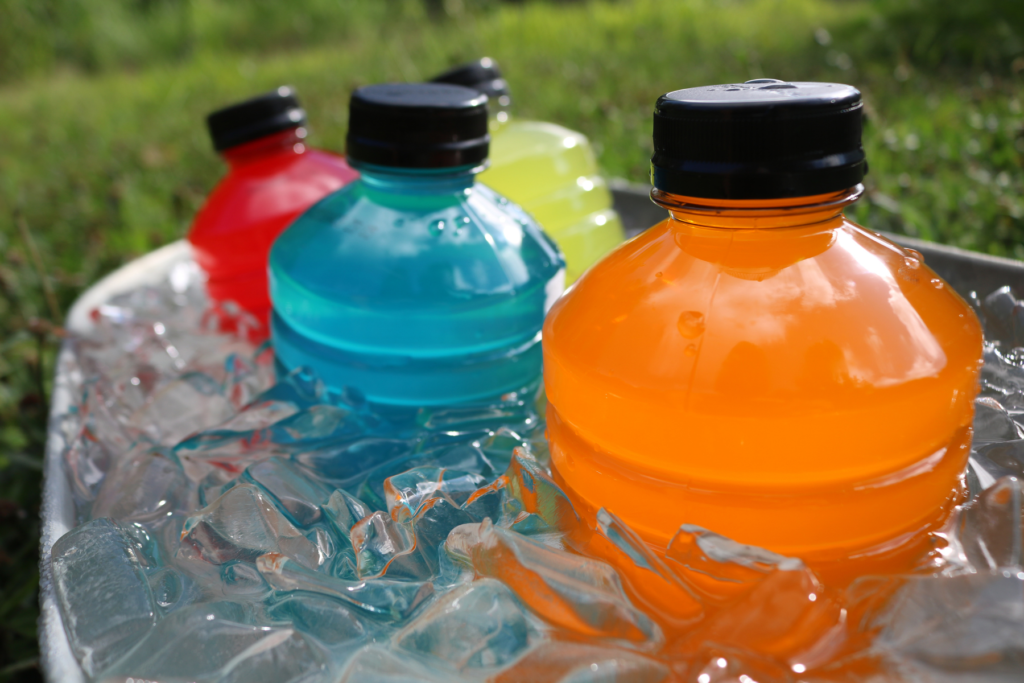Why Hydration is Essential for Active Women
May 9, 2022

Hydration is one of the most important topics when it comes to nutrition for active women. However, it’s often overlooked due to busy schedules, diet culture myths, and being seen as a lower priority.
Active women can be at a higher risk for dehydration and hydration-related issues for several reasons. Here’s a few reasons to keep an extra close eye on your hydration to improve your performance and health.
Low Energy Availability and Hydration
Active women and athletes are often under a lot of pressure. They are faced with diet and fitness culture and the pressures of body standards in the media and/or their sport. In addition, many athletes have a strong desire to achieve peak health and performance. As a result, women may learn harmful and inaccurate nutrition information. They may also suffer with body dissatisfaction, cycles of dieting, disordered eating patterns, and ultimately, low energy availability.
Low energy availability (LEA) is when active individuals intentionally or unintentionally underestimate what their body needs from a calorie standpoint. LEA can be a result of disordered eating patterns or the pressure to lose weight. However, it can occur due to a lack of knowledge, time to prepare meals, or a lack of cooking skills. Other athletes may experience LEA due to loss appetite after training, busy schedules, high training needs, etc. LEA often doesn’t impact hydration, but it can impact electrolyte intake. Ultimately this can have a negative impact on fluid balance and hydration.
The Impacts of Diet Culture
Many people consider sports drinks high in carbohydrates, sugar, and calories. In particular, diet culture often deems these drinks “unnecessary” or “bad” even though this is not the case. Females without sports nutrition knowledge regarding the benefits of these nutrients will often shy away from sports drinks. As a result, they may further deplete themselves of important electrolytes for hydration.

Menstrual Cycle Changes and Hydration
Hydration for women is especially important. Menstrual cycle hormones can have an impact on how our bodies regulate heat and fluid balance. As a result, fluctuating estrogen and progesterone levels may alter thirst, fluid needs, and hydration concerns, like hyponatremia.
Information on hydration’s impact on health and performance comes mostly from research on men. Thus, more research in this area is needed to understand how a female’s cycle may impact hydration. At this time, hydration protocols should stay consistent for women throughout the menstrual cycle and individual needs should be taken into account.
Chronic Disease Risk
To make matters even worse, women tend to be at a higher risk for most chronic illnesses. This includes irritable bowel syndrome, postural orthostatic tachycardia syndrome (POT-S), and autoimmune issues.
Most individuals can naturally meet their fluid and electrolytes through a nutritious diet and a hydration routine. However, active women with certain health conditions need to be extra careful when it comes to hydration and electrolytes.
Here are are just a few instances where this applies:
-Recurring diarrhea or loose stools, which can be chronic or acute due to food poisoning or upset stomach.
-Inflammatory bowel disease like Crohn’s or colitis
-Celiac disease
-Postural orthostatic tachycardia syndrome (POT-S)
-Other chronic diseases where optimal hydration is essential to management, like multiple sclerosis, sojourn’s disease, cystic fibrosis, etc

The Dangers of Dehydration
Even more concerning and dangerous is the risk for heat illness and hyponatremia when it comes to poor hydration strategies. This is something all athletes should be keeping in mind when building their daily, and training, fluid regimens.
Active women and female athletes tend to be more affected by hydration complications, like hyponatremia. This is most often attributed to them possessing more of the risk factors leading to this state of overhydration including over drinking during exercise, exercising 4+ hours, inexperience, inadequate training, slow pace, high or low BMI, and availability of fluids.
To avoid hyponatremia, here’s when you should consider supplementing additional electrolytes in their hydration routine…
-When you’re training or exercising for more than 1 hour
-If you’re a heavy sweater. Ex. excessive weight loss during workouts, a white ring around your clothes, or just sweating more than others
-Exercising in the high heat
-Two or more training sessions in a day
-Regular alcohol consumption
-Struggle with a chronic disease that can impact your hydration or ability to stay hydrated, as listed above.
If you’re looking for a sports dietitian to help you optimize your performance and health through a fueling and hydration routine, we are here to help. Check out our performance packages HERE.
[…] If you want to prevent these things from occurring during your exercise sessions achieving and maintaining euhydration is important! […]
[…] who goes to the gym a few times per week, sports dietitians are able to provide recommendations for hydration, fueling, and supplement practices backed by research that fit your health and fitness […]
[…] know that the average adult body is 60% water? Maintaining water balance in the body by properly hydrating is important for normal body functioning and also exercise and performance. Before we get into the […]
[…] Check out more reasons why hydration is especially important for women in our blog post Why Hydration is Essential for Active Women. […]